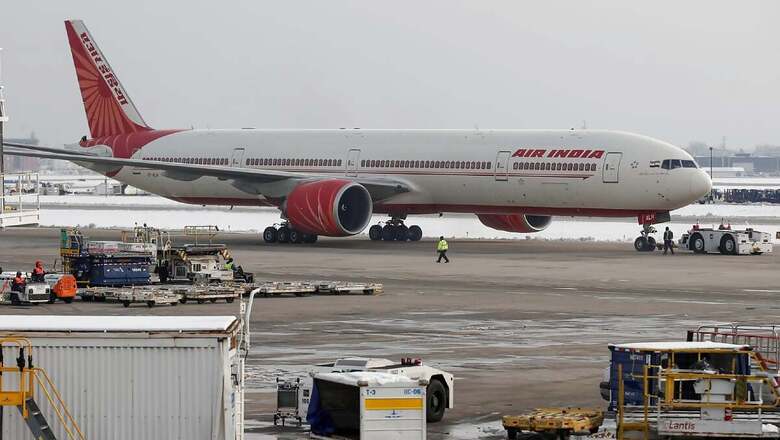
views
The Covid-19 pandemic is proving to be a good cover for the government’s narrative on a failed Air India selloff. While we are continuously assured of multiple bidders being in the fray for buying out this loss-maker, the government has been postponing the selloff date month after month.
Now, a raging pandemic and resultant disinterest among potential bidders is being cited to push deadlines further. The AI disinvestment saga began more than two years ago, with the government asserting then that there were multiple interested bidders and that this bold decision to offload AI could have only been possible in the Narendra Modi regime.
At that time, the bid conditions made it clear that the government would continue holding a minority stake in the airline and also pass on all the debt to the incoming owner. The sale eventually bombed, not a single bidder came forward due to these restrictive conditions.
Early this year, the process of selling off AI was restarted with amended terms. These included hiving off a considerable portion of the airline’s debt and putting the entire 100% stake on the block. Nine months down the line and multiple postponements later, the airline is still very much with the government even though reports of several bidders being in the fray persist. As the airline awaits a decision on its fate, its already precarious financial situation has worsened.
Now, sources close to developments say that even the one potential bidder – a large, reluctant Indian business house which has been under tremendous pressure from the government to place a bid – may also be holding off. These sources said that first of all, this business house feels any deal would be possible only after all the debt (and not just a part of it) is taken off. This involves a sum of nearly Rs 60,000 crore.
Secondly, this business house may be interested in only signing on a contract to manage operations, not a complete buyout. So instead of outright disinvestment, the government may have to settle with just a private party managing the airline. This would mean that not a single rupee would be earned by the government through selling AI.
Media reports suggest that the transaction advisor to the AI sale, EY, has suggested shutting down the airline and deferring the sale process by three years among several options. A final call on the future course of AI will be taken by a group of ministers, headed by the home minister, later this month.
Meanwhile, AI’s finances are going from bad to worse. In the first three months of this fiscal, the airline recorded a daily loss of almost Rs 28 crore (Rs 2570 crore for the quarter), against year-ago loss figure of Rs 23 crore daily. Revenue during these three months was down nearly 80% to Rs 1,531 crore (Rs 7066 crore).
Another source pointed out that some categories of employees, including pilots, have faced nearly 70% salary cuts because of the pandemic. This person said pilots’ flying hours have been cut drastically due to curtailed operations, they are now being paid only for actual hours flown and additionally, the flying allowance rate has been cut too. This source said the airline needs additional Rs 600-700 crore in funds from its owner, the government, to survive but the owner has been extremely reluctant to fund AI’s operations any further.
Yet another source said that while salaries have been paid till August, allowances for all employees (not just pilots) have been cut by up to 30%. This person also said that under the Leave Without Pay (LWP) scheme around 5% of the workforce has been relieved. “The staff who have opted for this scheme have done so voluntarily,” this person said.
Other cuts are also obvious. Whenever possible, online meetings are being done to save costs, hotel stay by staff is being discouraged even as vendor dues are piling up. The third source quoted above said vendors’ dues are being paid but with a significant delay. While cost-saving measures are essential in these times of uncertainty, these alone may not ensure either AI’s survival or a selloff.
So should the government listen to the lone business house still interested in Air India and opt for a management contract, instead of an outright selloff? Would shutting down the airline be the only sensible way out of the morass? If it is indeed shut down, what happens to the thousands of jobs directly and indirectly associated with such a large airline? Can the government afford to keep funding Air India’s losses in case disinvestment is postponed for three years?
There were no easy answers ever, but now, with the pandemic wreaking havoc on the entire aviation industry, there will be added difficulties. Suffice it to say that a decision, this way or that, on AI’s fate should be taken at the earliest. The pandemic should hasten decision-making in this case, instead of slowing it down.




















Comments
0 comment